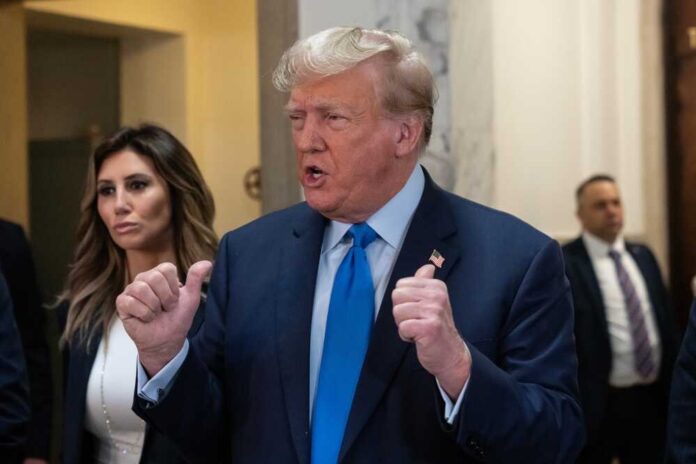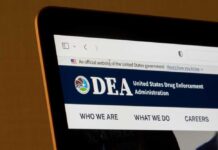Pre-trial motions in Donald Trump’s election interference case in Fulton County, Georgia resumed in late March with a hearing on Trump’s motion to dismiss the indictment against him, the Associated Press reported.
In a hearing on March 28, Steve Sadow, Trump’s lead attorney in Georgia, argued that the indictment brought by District Attorney Fani Willis sought to criminalize political speech protected by the First Amendment and should be dismissed.
The March 28 hearing also addressed two pre-trial motions from one of Trump’s co-defendants, former Georgia GOP Chairman David Shafer.
The hearing marked a return to regular court business following the turmoil over the allegations against District Attorney Willis and the special prosecutor in the case, Nathan Wade.
Sadow told Superior Court Judge Scott McAfee that everything alleged in the indictment was “political speech,” arguing that Trump voicing concerns about the 2020 presidential election was “the height of political speech” and would be protected under the First Amendment even if what Trump said proved to be false.
Donald Wakeford, a prosecutor in the case, disputed Sadow’s argument, telling the judge that the First Amendment did not protect statements that were made “as part of a criminal conspiracy” or to “make false statements to the government.”
Wakeford noted that the judge in Trump’s federal election interference case rejected similar arguments from Trump’s legal team.
In her December ruling, US District Judge Tanya Chutkan wrote that the First Amendment did not “protect speech that is used as an instrument of a crime.” Chutkan noted that Trump wasn’t being prosecuted for simply making false statements but for “knowingly making false statements” to further a criminal conspiracy.”
Most of the charges against David Shafer stem from his involvement in the fraudulent electors’ scheme in Georgia, including forgery, making false statements, impersonating a public officer, and attempting to file fraudulent documents.
Shafer’s attorney Craig Gillen argued that his client was engaged in activity that was lawful at the time under the requirements of the Electoral Count Act.














